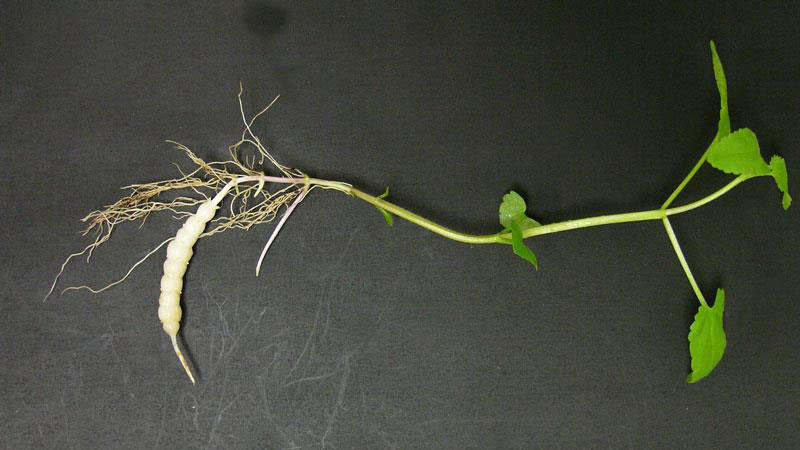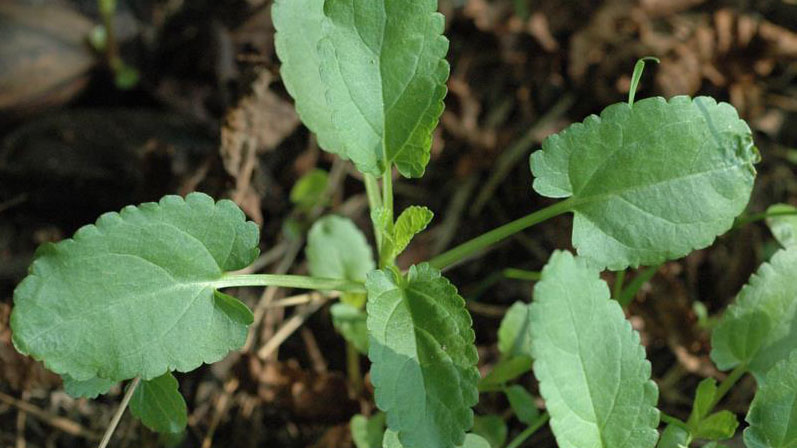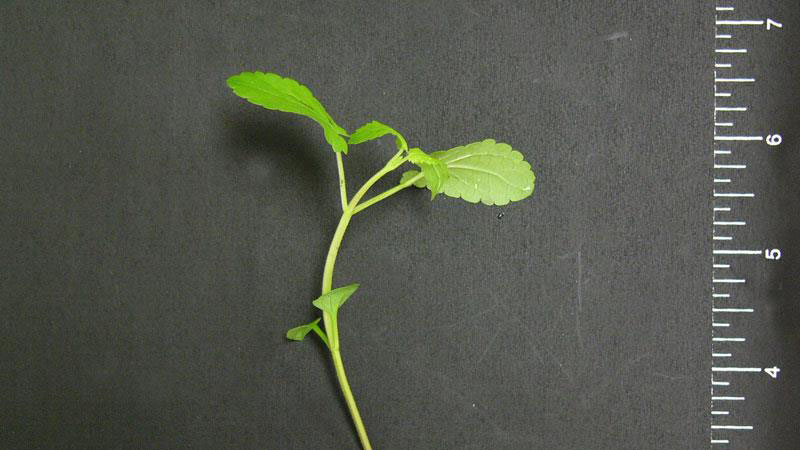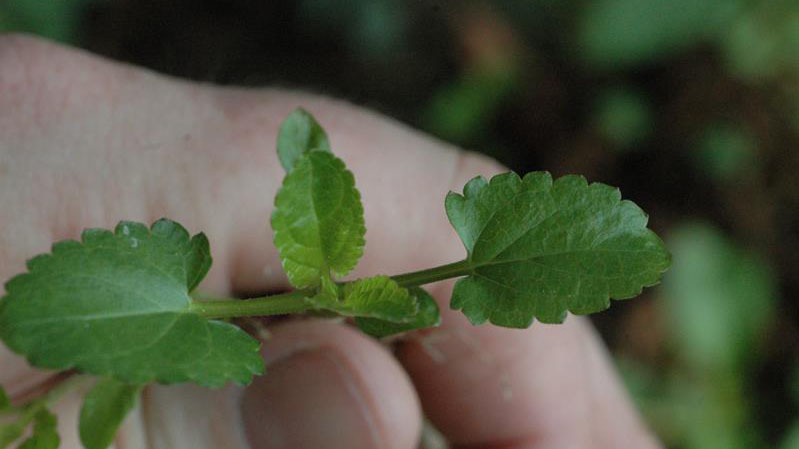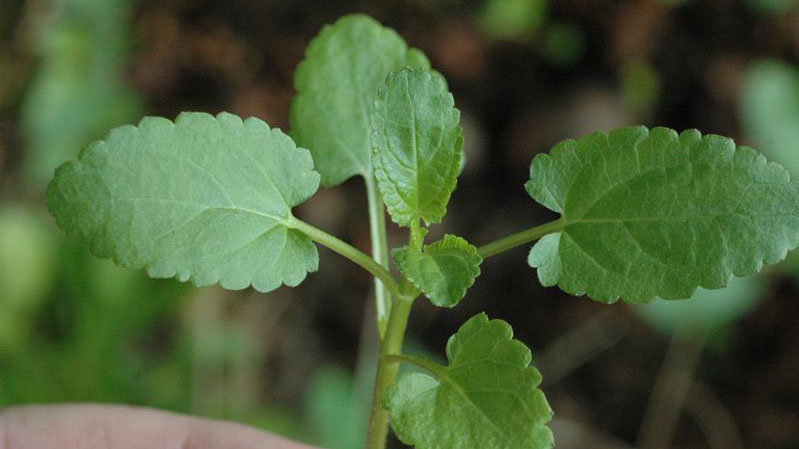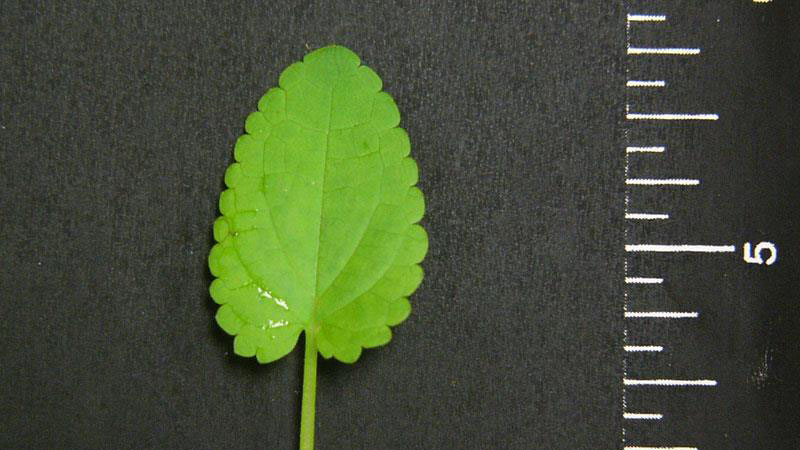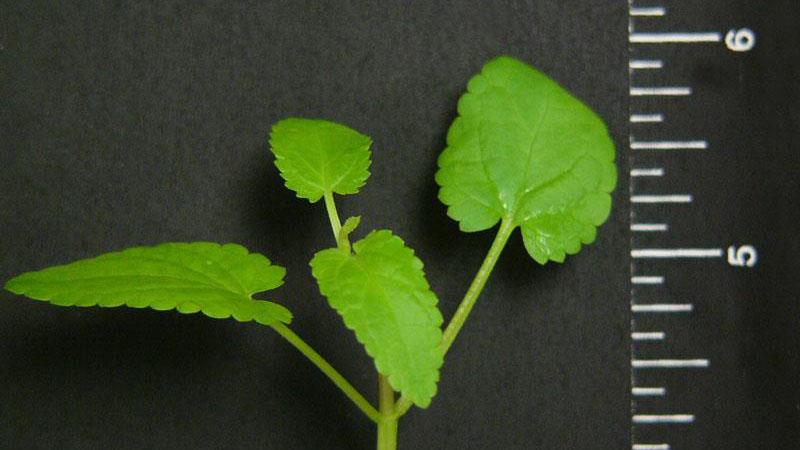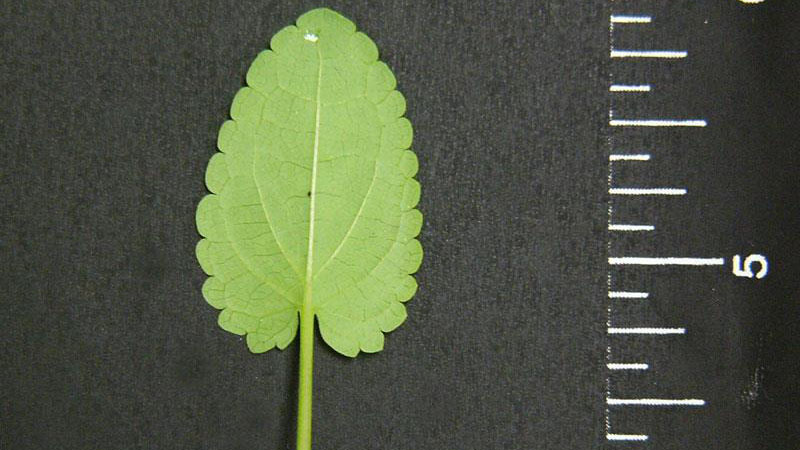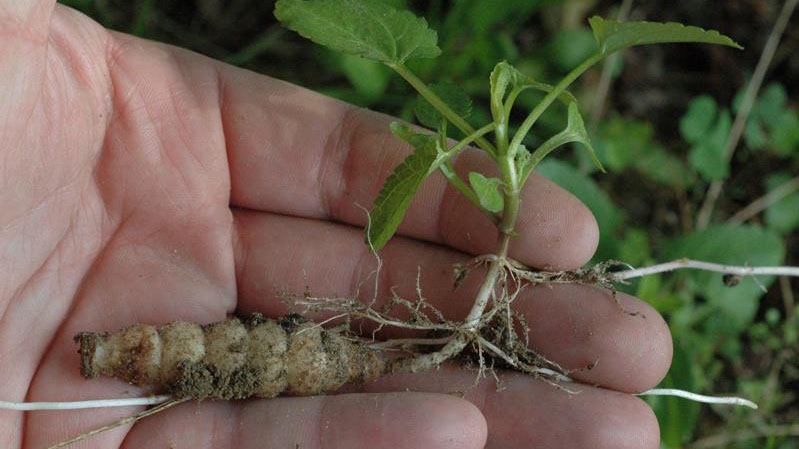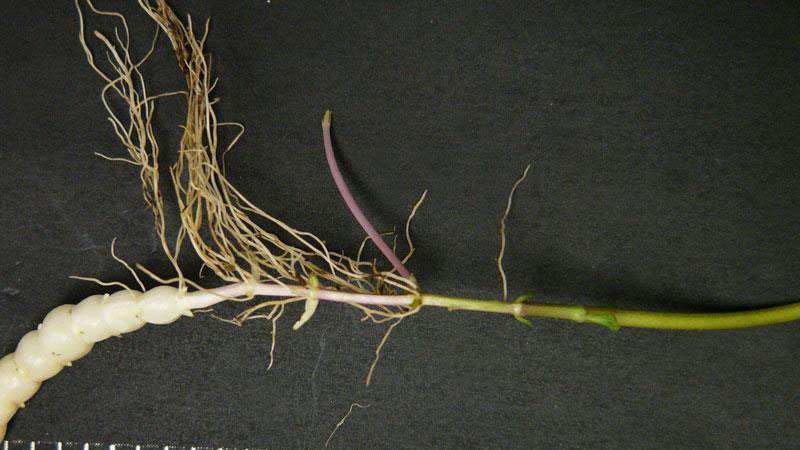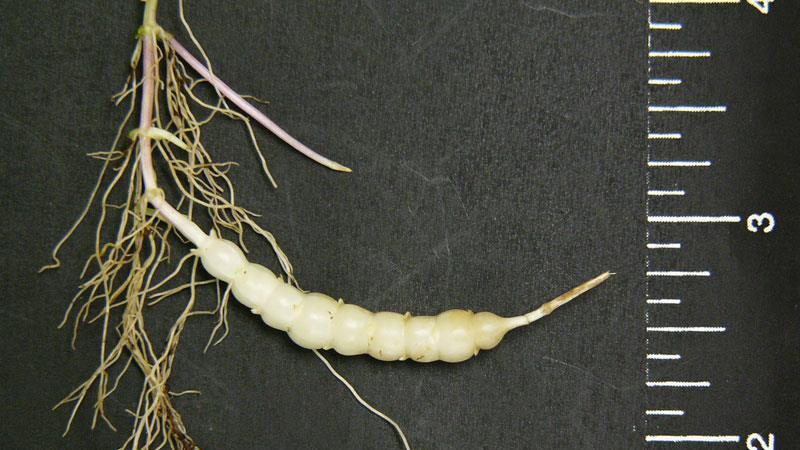Description
Florida betony (Stachys floridana) is a hard-to-control perennial weed that emerges in the fall and becomes a problem in late winter and spring. It is easily recognized by the very characteristic white tuber that resembles a rattlesnake rattle. This weed also has square stems and produces white to pink flowers in the spring. It is found in the southern United States west to Texas and north to Virginia.
Cultural Control
Perennial broadleaf turf weeds are capable of living more than two years. They thrive in weak, thin turf; golf fairways and roughs; home lawns; playfields; and industrial grounds. Proper turf maintenance is the key to control of this weed. First, select adapted turfgrass cultivars for your area and then properly fertilize, mow, and water to encourage dense growth.
Species Data
- GROWTH SEASON / LIFE CYCLE
- perennial weed
- GROWTH HABIT
- LEAFLET NUMBER
- one
Figure 3
- one
- LEAF MARGIN
- LEAF HAIRS
- none
- LEAF / LEAFLET SHAPE
- heart/kidney/spade
- LEAF WIDTH
- 1/2 - 1 inch
- LEAF VENATION
- palmate
- LEAF ARRANGEMENT
- opposite
- ROOT TYPE
- FLOWER COLOR
- white to pink
Publication date: Nov. 16, 2017
Recommendations for the use of agricultural chemicals are included in this publication as a convenience to the reader. The use of brand names and any mention or listing of commercial products or services in this publication does not imply endorsement by NC State University or N.C. A&T State University nor discrimination against similar products or services not mentioned. Individuals who use agricultural chemicals are responsible for ensuring that the intended use complies with current regulations and conforms to the product label. Be sure to obtain current information about usage regulations and examine a current product label before applying any chemical. For assistance, contact your local N.C. Cooperative Extension county center.
N.C. Cooperative Extension prohibits discrimination and harassment regardless of age, color, disability, family and marital status, gender identity, national origin, political beliefs, race, religion, sex (including pregnancy), sexual orientation and veteran status.

